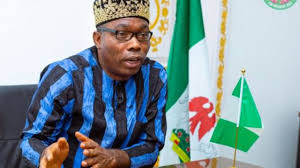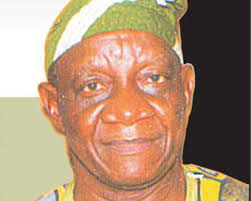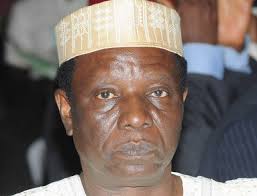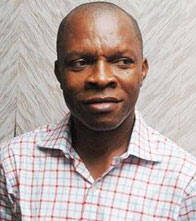IMF/WTO verdicts: Corruption, absence of rule of law harm Nigeria’s economy, by Olu Fasan
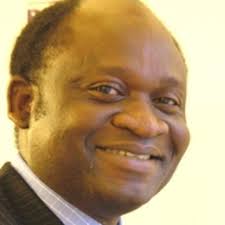
The International Monetary Fund, IMF, and the World Trade Organisation, WTO, both have a remit to monitor and review the economic developments and policies of their members. The aim, for the IMF, is to ensure that countries manage their economies and finances well to prevent financial instabilities both nationally and internationally. For the WTO, the aim is to make sure none of its members pursues autarkic, beggar-thy-neighbour trade policies that could harm their economies and those of other members, upending the global economy.
Thus, under Article IV of its Articles of Agreement, the IMF conducts what is known as Article IV Consultations with each of its members every year, studying their economic policies and practices, highlighting the strengths and weaknesses and providing policy recommendations. Similarly, under Article IV (4) of the WTO Agreement, the WTO undertakes a Trade Policy Review, TPR, of each member-state to ensure their trade policies are consistent with WTO rules. However, unlike the IMF, the frequency of the WTO’s TPRs is determined by each member’s share of world trade. For that reason, given Nigeria’s minuscule share of world trade, at about 0.49 per cent, its TPR takes place every six or seven years, and, since the WTO was established in 1994, Nigeria has had six TPRs to date.
Now, believe me, I have read virtually all the reports of the IMF Article IV Consultations on Nigeria over the past ten years, and have read all the reports of WTO’s six TPRs on Nigeria, the latest published in November 2024. Why? You may wonder. Well, the fixation is borne out of my professional interests as a trade lawyer and a scholar in international economic and trade law and policy, a subject I taught at the London School of Economics, not to mention once being a researcher at the WTO in Geneva.
Over the years, Nigeria’s successive Article IV Consultation and TPR reports made a damning reading because they constantly highlighted the structural weaknesses in Nigeria’s economic and trade policies and lamented the country’s stubborn refusal to implement the policies recommendations of the IMF and the WTO, thereby failing to tackle the defects.
However, the 2024 Article IV Consultation and TPR reports were a bit different. Both the IMF and the WTO recognised and commended the economic reforms introduced by the Bola Tinubu administration, notably: the removal of the fuel subsidies, the floating of the naira and the scrapping of the CBN’s list of 43 import items for which foreign exchange could not be purchased in the official forex market. Nevertheless, the IMF and the WTO acknowledged that Tinubu’s reforms had produced adverse consequences, particularly with skyrocketing inflation, massive depreciations of the naira and acute food insecurity and hunger. They implied that the lack of proper sequencing of the reforms, the absence of effective mitigation, such as genuine safety nets, and “persistent loose financial conditions” should be blamed.
But what really struck me in the reports is the attention that both the IMF and the WTO gave to how endemic corruption and the absence of the rule of law pose existential challenges for Nigeria’s economy. The WTO states: “Corruption, coupled with weak enforcement of the rule of law, remains significant barriers to private sector-led growth in Nigeria.” On its part, the IMF devotes a whole section to the issue, under an annex titled “Towards stronger anti-corruption and rule of law in Nigeria”. The IMF points to studies showing that “reducing corruption in Nigeria to the level observed in benchmark countries (for example, Malaysia, Mongolia, Morrocco or South Africa) could boost growth by 0.5 to 1.5 percentage points annually”, and “lowering Nigeria’s level of corruption to that of South Africa could increase the amount of infrastructure obtained from each publicly invested dollar by 12 per cent.”
Of course, everyone knows that Nigeria is a fantastically corrupt country, where, as the IMF puts it, “corruption is entrenched at all levels of government activity.” But few people in this country link corruption to Nigeria’s economic performance. I mean, if reducing corruption to the level in South Africa could grow Nigeria’s economy by 1.5 per cent and could increase the amount of infrastructure obtained from each dollar the government spends by 12 per cent, why are Nigerians lethargic about the level of corruption in their country? Why are they behaving as if corruption is a victimless crime that has nothing to do with them?
Sadly, although few talk publicly about this, corruption is the Achilles’ heel of the Tinubu administration.
But what are the main sources of the endemic corruption? Well, the first is the pervasive lack of government transparency. Nigeria is a country where government activity is shrouded in utter secrecy – secrecy about how contracts are awarded and to whom; secrecy about how budget allocations are spent; secrecy about how Ministries, Departments and Agencies, MDAs, spend public money. Public disclosure, a common practice in civilised nations, is a rarity in Nigeria. Despite the existence of the so-called Freedom of Information Act, it’s easier to squeeze water from a stone than to have access to government information. The IMF calls for the passage of the Whistle-Blower and Witness Protection Bills. But even if the bills were passed into law, a government that uses Cybercrime laws to suppress freedom of speech and of the press would hound and intimidate whistle blowers.
There’s a multitude of agencies, policies and initiatives purportedly designed to tackle corruption in Nigeria. Yet, large-scale corruption persists. Why? Because such “anti-graft efforts” are devoid of transparency, accountability, honesty, sincerity, credibility and political will. And, of course, because the fish rots from the head down, the battle is lost ab initio!
Now, the other main source of corruption in Nigeria is also well-known: the absence of the rule of law. With respect to the economy, this is more noticeable in tax administration and port and customs operations. For instance, according to the WTO, over 90 per cent of all consignments undergo physical inspection prior to customs clearance, despite the existence of a risk management system, while businesses make about 200 unofficial tax payments per year. Why? They are symptoms of an utter disregard for the rule of law, fuelled by corruption! Sadly, such abuses permeate every section of the Nigerian economy.Truth is, the IMF and the WTO are right: Nigeria’s chronic and acute governance, corruption and rule-of-law problems are real obstacles to its economic progress. But who’s listening?

